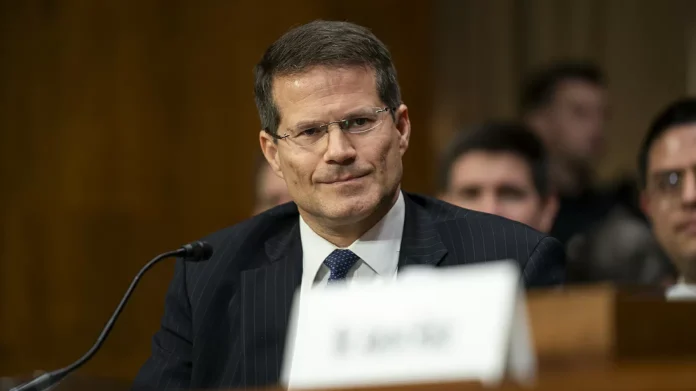President Trump’s nominee for solicitor general, D. John Sauer, has sparked controversy with his recent statements during his confirmation hearing. Sauer, who is a seasoned lawyer and has served as a law clerk for Supreme Court Justice Clarence Thomas, made a bold statement that has raised eyebrows and caused concern among many.
During his hearing, Sauer was asked by Senator Dick Durbin about the role of elected officials in following court orders. In response, Sauer stated that while it is generally expected for federal and state officials to follow court orders, there may be “extreme cases” where an elected official could defy a court order.
This statement has caused a stir among legal experts and politicians alike, as it goes against the fundamental principle of the rule of law. The rule of law is the belief that all individuals, including elected officials, are subject to and must abide by the law. It is a cornerstone of our democracy and ensures that no one is above the law.
Sauer’s statement has been met with criticism and concern, as it raises questions about the potential consequences of an elected official defying a court order. It also brings into question the integrity and independence of the judicial system, as well as the role of the solicitor general in upholding the law.
However, it is important to note that Sauer’s statement was made in the context of extreme cases. This means that he was not advocating for elected officials to routinely defy court orders, but rather acknowledging that there may be rare instances where it could be justified.
In fact, Sauer clarified his statement by saying that in such extreme cases, the elected official should be prepared to face the consequences of their actions. This shows that he understands the gravity of his statement and recognizes the importance of upholding the rule of law.
It is also worth noting that Sauer’s statement is not without precedent. In the past, there have been instances where elected officials have defied court orders, citing their own moral or religious beliefs. While these cases are rare, they do exist and it is important to have a legal framework in place to address them.
Furthermore, Sauer’s statement should not be seen as a reflection of President Trump’s views on the rule of law. As the nominee for solicitor general, Sauer’s role is to represent the government in legal matters and uphold the law, regardless of his personal beliefs.
In conclusion, while Sauer’s statement may have caused some concern, it is important to understand the context in which it was made. As a highly qualified and experienced lawyer, Sauer’s nomination should be evaluated based on his qualifications and ability to fulfill the duties of the solicitor general, rather than a single statement made during a confirmation hearing.
The rule of law is a fundamental principle of our democracy and it is the responsibility of all individuals, including elected officials, to uphold it. As Sauer moves forward with his confirmation process, it is important for him to demonstrate his commitment to upholding the law and the integrity of the judicial system.

